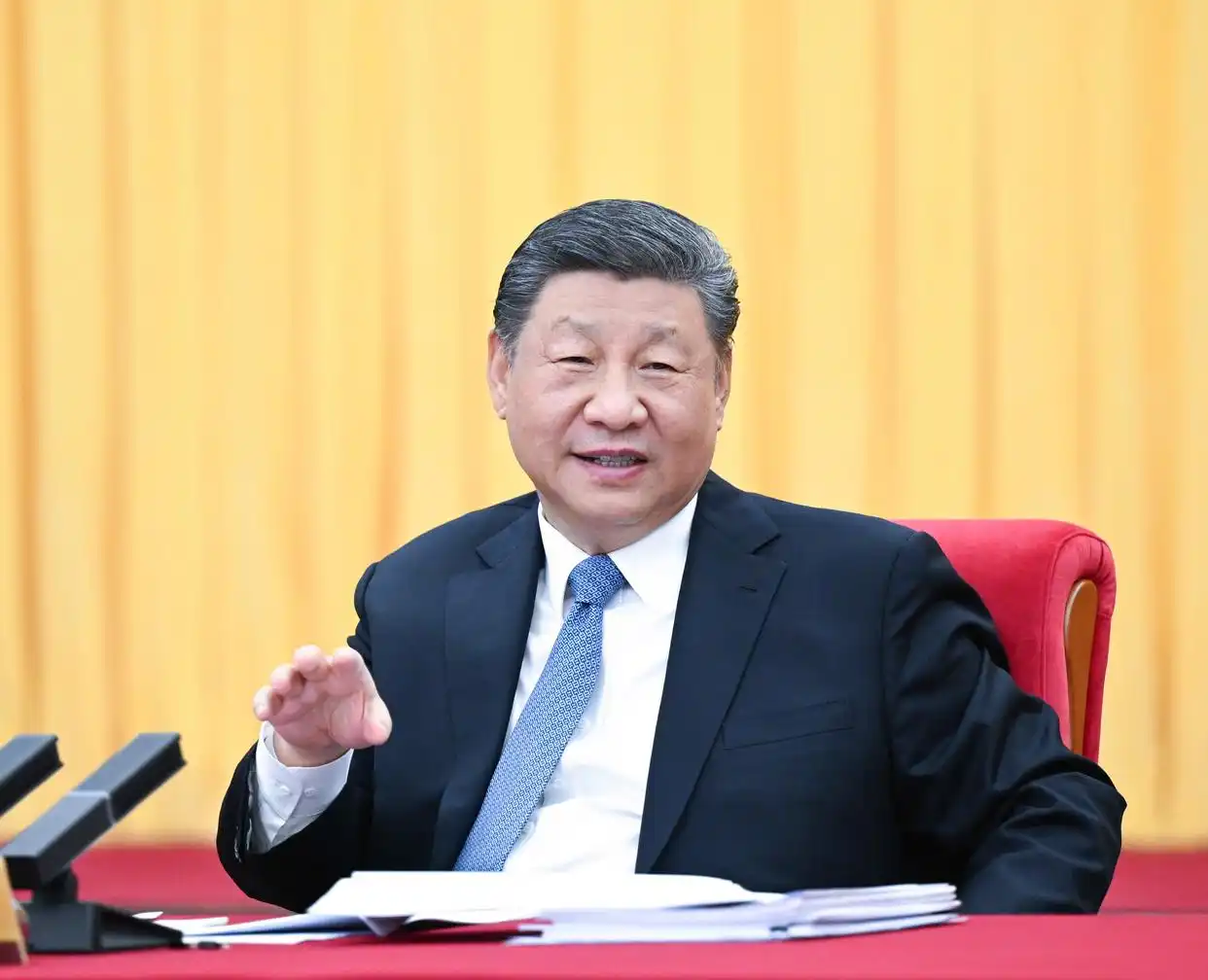




- BRNN
- BRI News
- BRNN News
- Database
Official Documents Polices and Regulations
Inter-government Documents International Cooperation BRI Countries
Business Guide Economic Data BRI Data
Trade
Investment Projects Latest projects
Cases - Content Pool

President Xi Jinping takes part in a joint group meeting with members of the 14th National Committee of the Chinese People's Political Consultative Conference in Beijing, capital of China, March 6, 2025. (Photo: Xinhua)
President Xi Jinping attaches great importance to education. He stressed that making the nation a leader in education is a fundamental project to advance the great rejuvenation of the Chinese nation on all fronts through a Chinese path to modernization.
On the afternoon of March 6, he recounted a story from his past during a joint group meeting with members of the China Democratic League, the China Association for Promoting Democracy, and those from the education sector attending the third session of the 14th National Committee of the Chinese People's Political Consultative Conference.
"Back then, I was proud to have raised funds to build a primary school in Liangjiahe village. However, the school was later closed," Xi recalled. Liangjiahe was a remote village in Northwest China's Shaanxi Province.
In 1969, Xi arrived in Liangjiahe at the age of just 15. He spent seven years there as an "educated youth." Observing the widespread illiteracy, Xi proposed the establishment of a literacy class.
After leaving northern Shaanxi, Xi has remained committed to the Liangjiahe villagers' well-being. He has helped the village access electricity, build bridges, and renovate the primary school. While serving as the Fuzhou municipal Party committee secretary, he revisited Liangjiahe, bringing new school bags, stationery, and alarms to remind the children of school time.
"No matter how difficult the circumstances, we must not let the children suffer. Regardless of how impoverished the situation is, we must not deprive them of education." The healthy growth of children has always been Xi's highest priority. "The best house in the village should be the school," Xi once said. While working in local areas, Xi devoted significant energy to improving children's education.
Before International Children's Day in 2024, Xi warmly replied to students at Zhijiang Primary School in the Jialing district of Nanchong, Sichuan Province, saying, "Seeing the letter, I recalled the scene of laying the foundation stone for your school 20 years ago."
Zhijiang Primary School is one of the primary schools funded by Zhejiang in Nanchong under the Project Hope.
In May 2004, Xi, then the Party secretary of Zhejiang, visited to lay the foundation stone for the school and earnestly urged, "We must build this school well and help the children in the mountain village become talented individuals as soon as possible."
Since the 18th National Congress of the Communist Party of China in 2012, Xi has prioritized educational development by inspecting schools in remote mountainous areas, ethnic regions, and areas rebuilt after disasters.
Reflecting on China's educational transformation, Xi remarked, "The course of our own education has undergone earth-shaking changes!"
Changes amid progress bring new challenges. The evolving scale and structure of the population are placing new demands on education. During the joint group meeting on March 6, Cai Guangjie, deputy director of the Education Department of Sichuan Province, highlighted that new issues have arisen as population distribution shifts toward urban areas and the school-age population has decreased in recent years. These include the simultaneous coexistence of both excess and shortage of admission quota and an uneven distribution of teaching staff.
Xi echoed the change and cited the closure of the primary school in Liangjiahe that he helped fund, saying: "Why was it later closed? It was a positive development because students were relocated to a school in the township area to receive a higher-quality education. That was also a structural adjustment of the school."
During the joint group meeting, Xi emphasized with profound foresight, "Focusing on the needs of modernization and adapting to changes in demographic structure, efforts must be made to ensure the coordinated development of basic education, higher education, and vocational education. Additionally, government and social investments should be coordinated to establish a more rational and efficient mechanism for allocating educational resources."
(Compiled by Huang Jingjing and Xiao Kexin; Proofread by Chen Lidan and Xu Zheqi)

Tel:86-10-65363107, 86-10-65368220, 86-10-65363106